Conflict
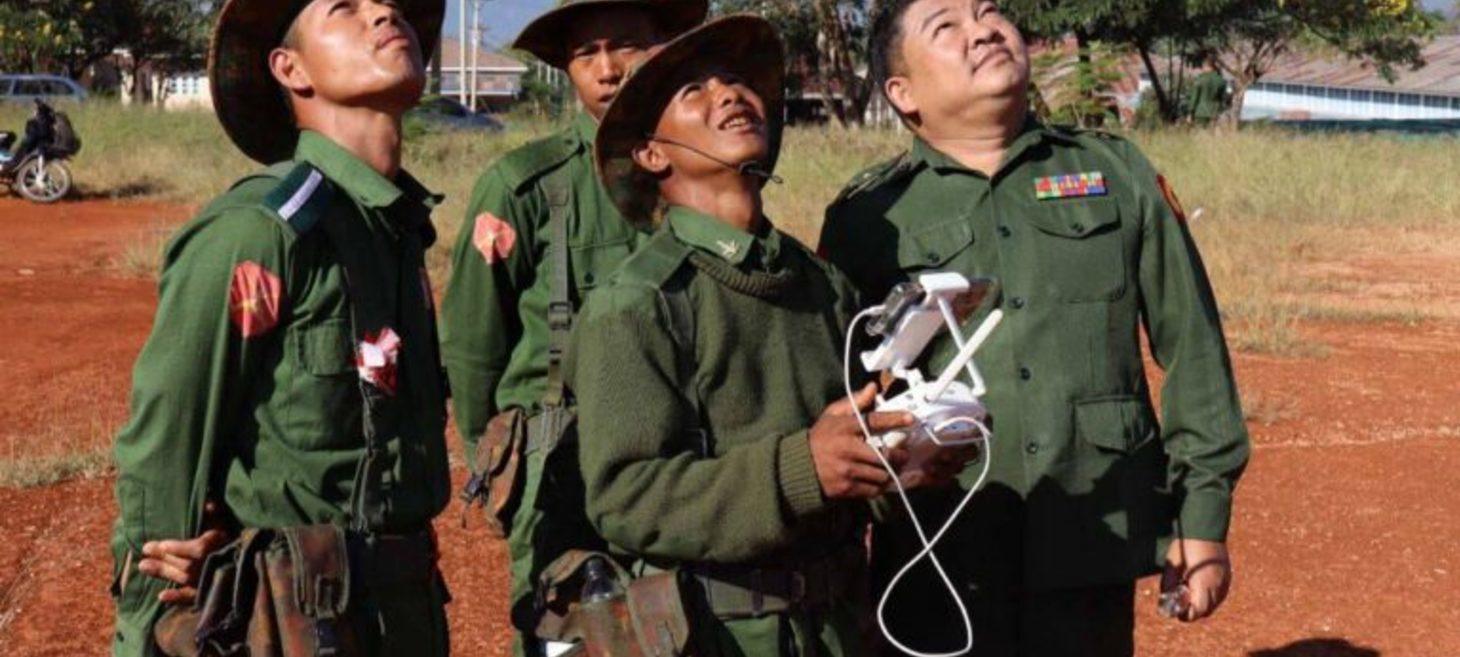
Myanmar military using drones in counteroffensive to retake Kachin State town
The Myanmar military has launched a counteroffensive using unmanned drones to retake the town of Momauk in Kachin State from the Kachin Independence Army (KIA). This effort is part of a broader campaign to regain control over territories lost to the KIA and Kachin People’s Defence Forces, who captured Momauk in August after months of fighting. The military's strategy includes artillery and air support, with reports of intense drone usage for bombing raids. This escalation highlights the ongoing conflict and the military's reliance on advanced technology to suppress resistance forces in the region.
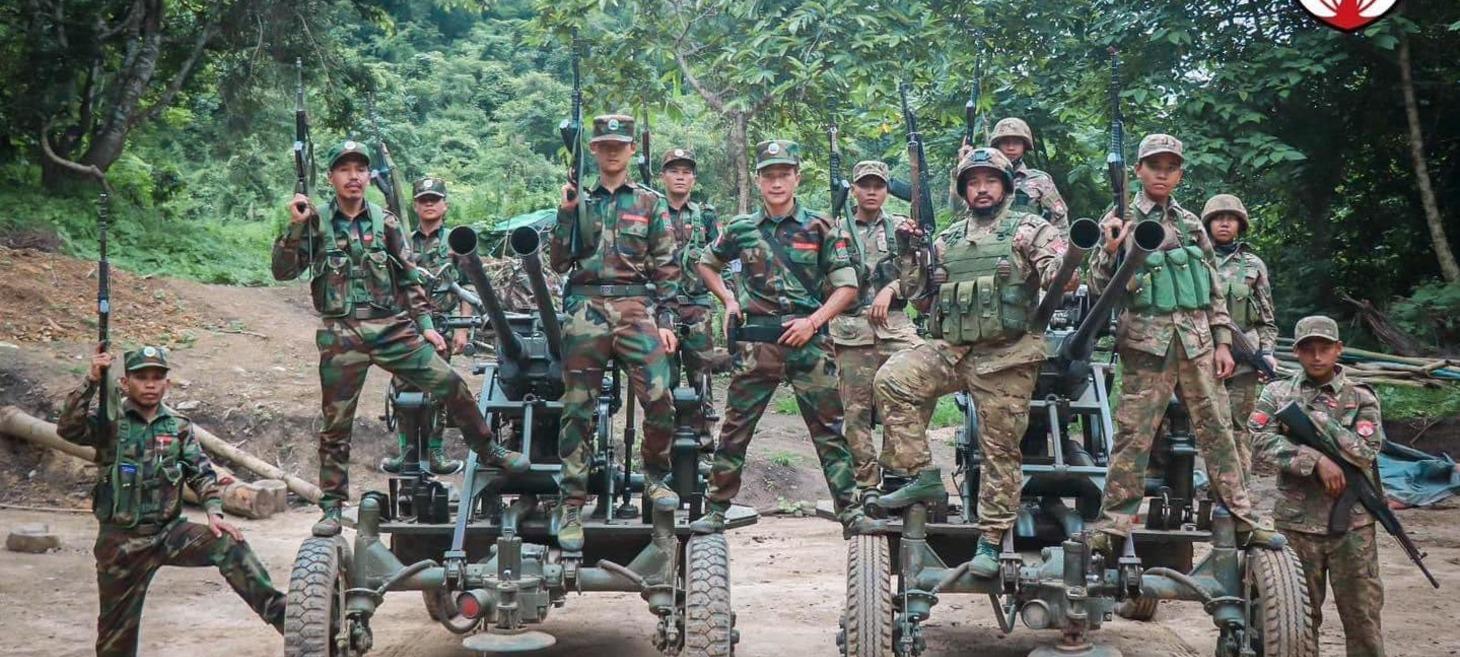
Clashes escalate near Myanmar military’s top training city
The Myanmar military has launched a counteroffensive to reclaim villages in Nawnghkio Township, northern Shan State, from the Ta’ang National Liberation Army (TNLA) to protect the strategic town of Pyin Oo Lwin, home to the country's premier military training facilities. The military aims to establish a defensive buffer against potential TNLA assaults from neighboring villages, including Tawng Hkam, Thea Khaw, and Gant Gaw. The offensive began with junta troops advancing into Gant Gaw, highlighting the ongoing conflict and the military's efforts to maintain control over key regions amid resistance from ethnic armed groups.
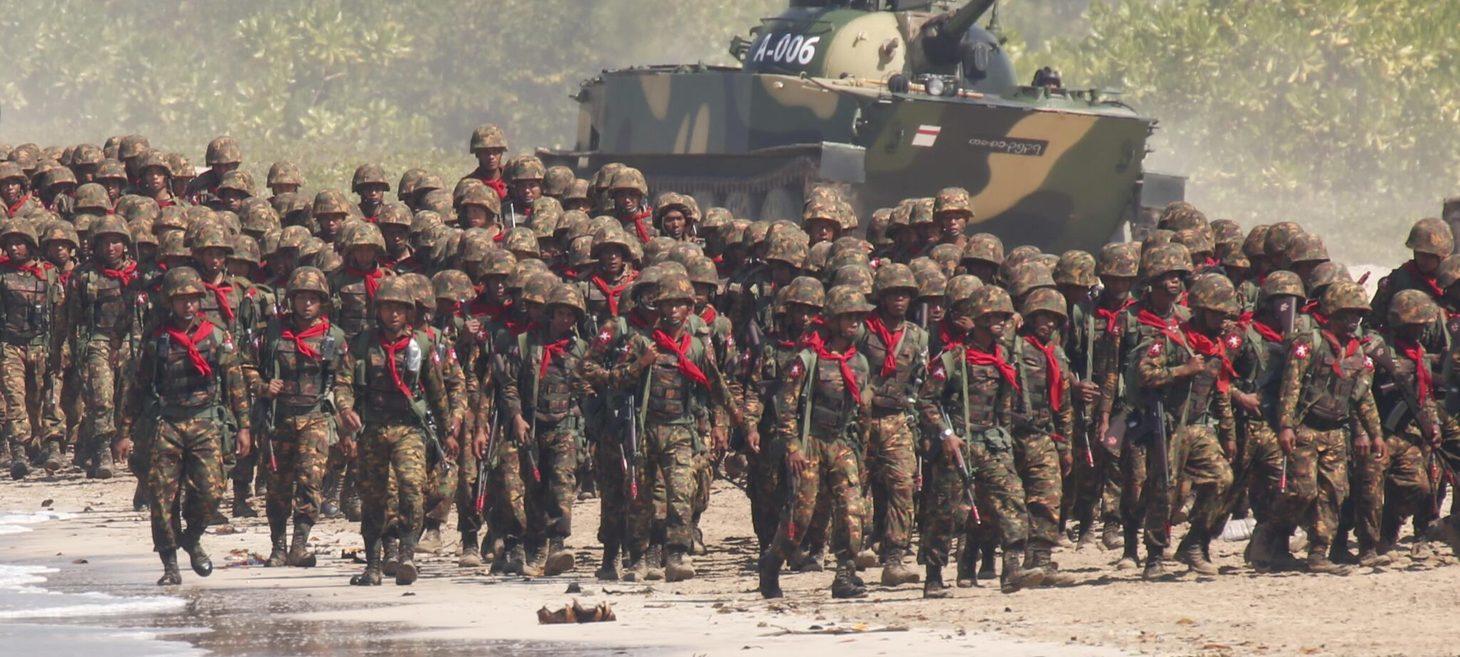
The evolution of warfare in Myanmar
Nearly four years of post-coup conflict have transformed the way Myanmar’s military and its many enemies wage war against each other
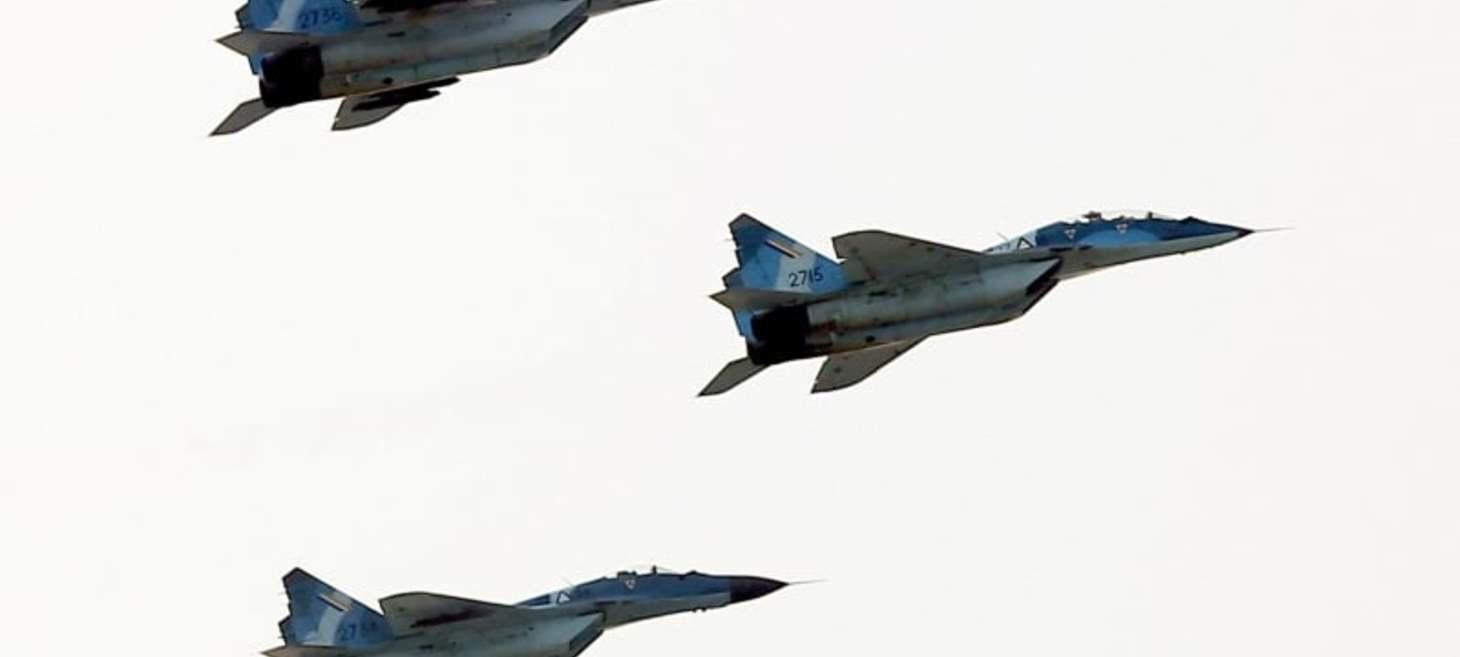
KNPP secretary declares junta crumbling under revolutionary pressure
U Aung San Myint, Secretary 1 of the Karenni National Progressive Party (KNPP), highlighted the mounting pressure on Myanmar's junta across military, political, and diplomatic arenas nearly four years into the military revolution, during a joint online press conference with representatives from the Karen National Union (KNU), Chin National Front (CNF), National Unity Government (NUG), and the KNPP on November 5. He emphasized the unique nature of the ongoing resistance since the 2021 People’s Revolution, noting the destruction of the Military Council's structure and functions. The KNPP stressed that increased unity among revolutionary forces and the public would inevitably lead to the junta's downfall, urging continued resistance against the junta's proposed sham elections and negotiations. Echoing this sentiment, KNU General Secretary Padoh Saw Tah Doh Moo and CNF spokesperson Salai Htet Ni called for collective action, driven by public support, to seize the opportunity to end military dictatorship. On January 31, 2024, marking three years since the military coup, the NUG, KNU, KNPP, and CNF collectively demanded the overthrow of the military dictatorship, the abolition of the 2008 Constitution, the establishment of transitional justice, and the creation of a federal democracy, with the Kachin Independence Organization (KIO) later backing this agreement.
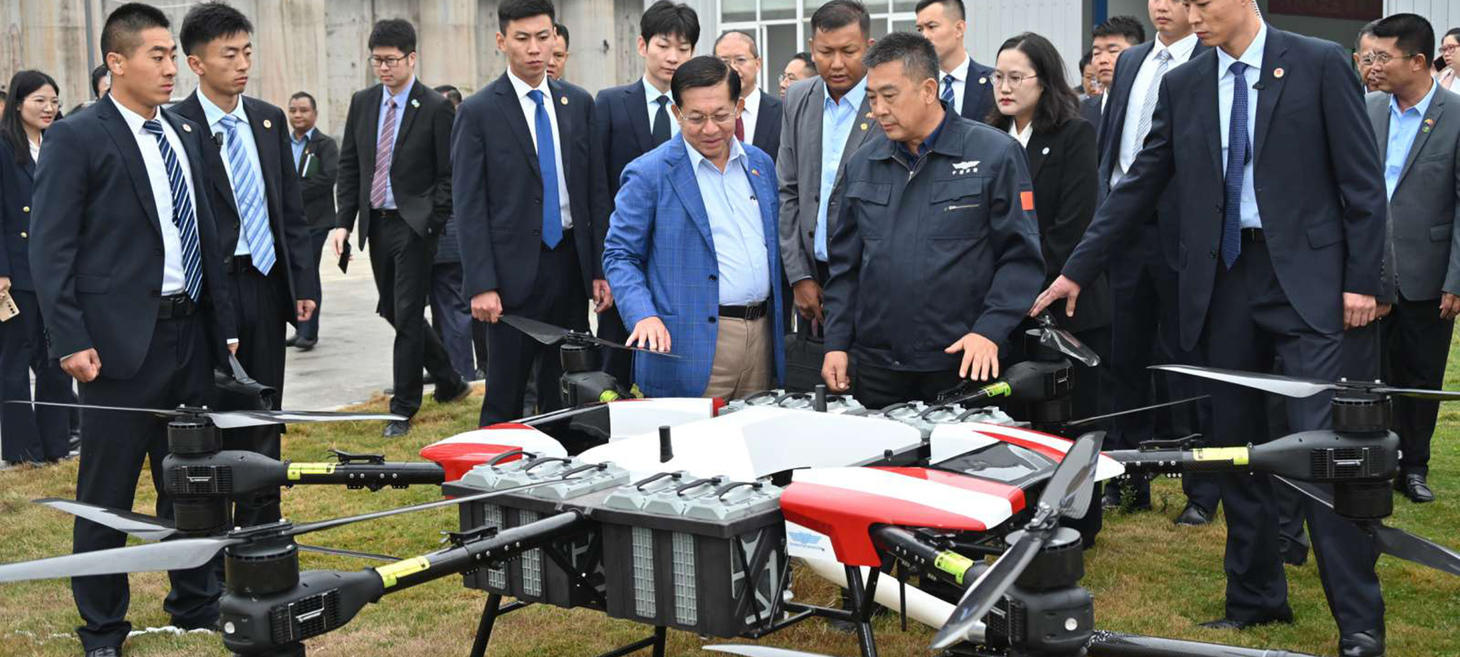
Myanmar Junta Chief Homes in on Chinese Drones as Resistance-Buster
Myanmar's junta chief, Min Aung Hlaing, is focusing on acquiring Chinese drones to counteract resistance forces, as these drones are seen as a strategic advantage in surveillance and combat operations. The junta has been increasingly reliant on technology to suppress opposition, and Chinese drones are considered effective tools for enhancing their military capabilities. This move is part of a broader strategy to strengthen the junta's position against resistance groups, which have been gaining ground in various regions. The acquisition of drones underscores the junta's commitment to leveraging advanced technology to maintain control and suppress dissent.
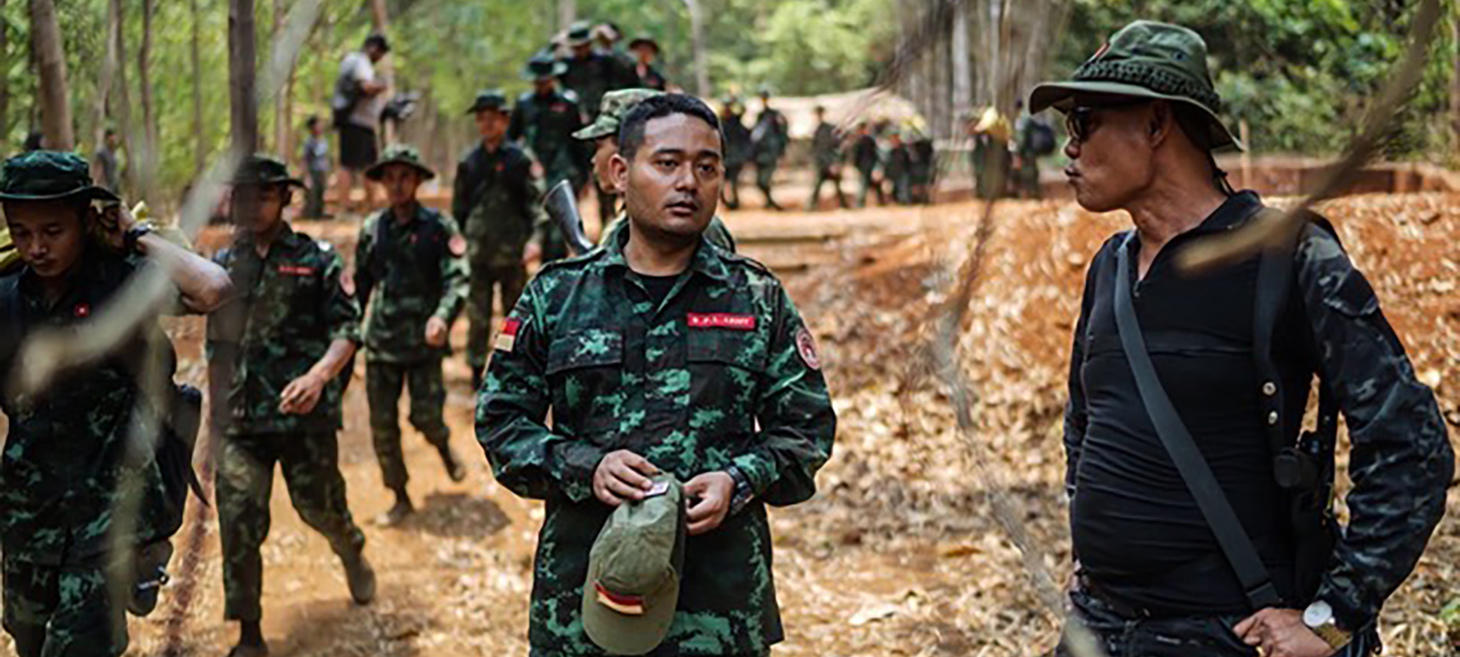
Bamar Armed Group Aims to Break Junta Rule in Central Myanmar
The Bamar People's Liberation Army (BPLA), an armed group in Myanmar, is determined to dismantle the junta's control in central Myanmar. Formed in response to the military coup in 2021, the BPLA aims to unite various ethnic groups and pro-democracy forces to challenge the military regime. The group operates in collaboration with other ethnic armed organizations and the National Unity Government, focusing on guerrilla warfare tactics to weaken the junta's hold. The BPLA's efforts are part of a broader resistance movement across Myanmar, which has seen significant territorial gains against the military, despite the junta's continued air superiority and attempts to regain control. The group's leader emphasizes the importance of unity among resistance forces to achieve their goal of ending military rule and establishing a federal democratic system in Myanmar.
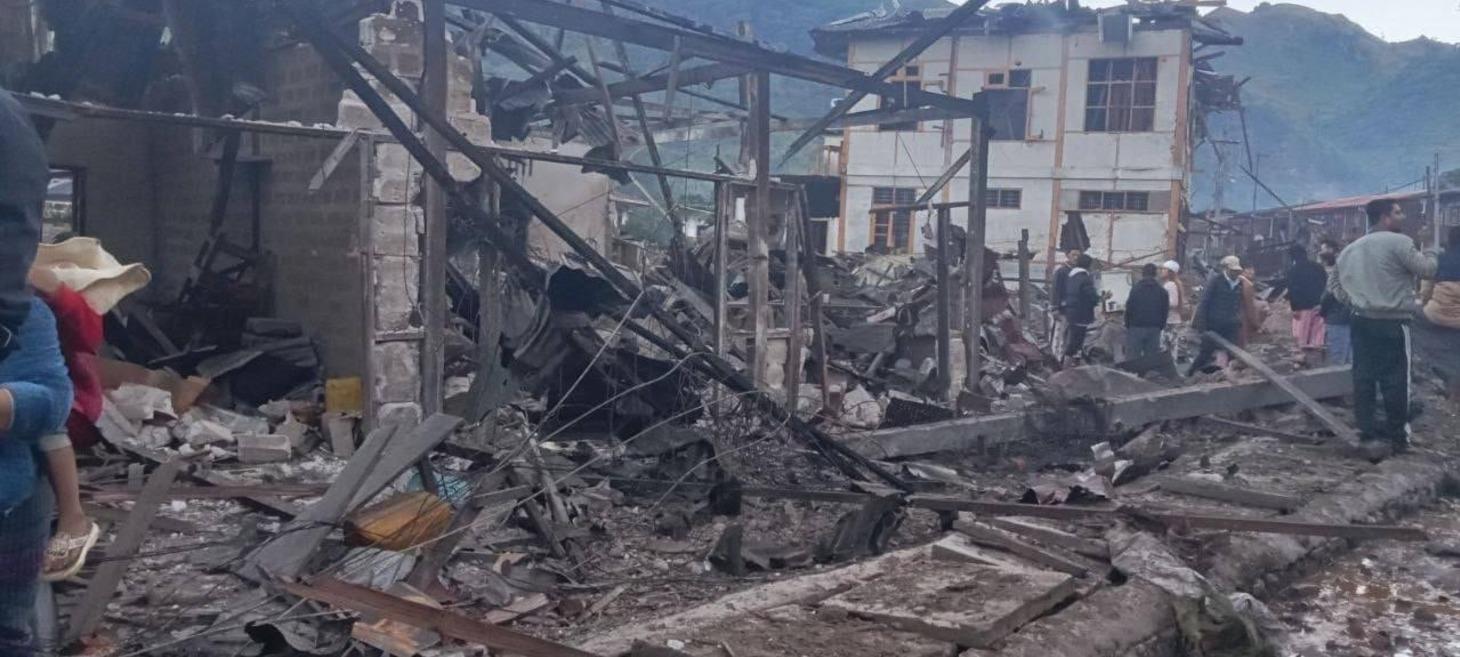
Nine civilians killed by Myanmar junta airstrikes after ruby mining resumes in Mogok
Junta airstrikes in Mogok, a ruby-mining center in Myanmar's northern Mandalay Region, resulted in the deaths of at least nine civilians and injuries to more than a dozen others. The attacks involved two warplanes dropping 500-pound bombs on the town following a surveillance flight the previous night. Casualties occurred in both eastern and western Mogok, with the Ta’ang National Liberation Army (TNLA), which controls the town, reporting the deaths and injuries. The strikes came shortly after the TNLA announced the resumption of small-scale mining operations in the area following their capture of Mogok after a ceasefire with the military regime collapsed. The attacks left significant damage, including a large crater and destroyed buildings, and were seen as a response to the junta losing control over the lucrative mining business in Mogok.

Fog of war: The battle for truth and blame in the Rakhine conflict
The conflict in Rakhine State, Myanmar, is marked by a complex struggle for truth and accountability, with the Arakan Army (AA) accused of committing crimes against the Rohingya in Buthidaung. Witnesses reported AA soldiers burning homes and detaining Rohingya civilians, although the AA denies these allegations, attributing the violence to clashes with the Myanmar military. The situation is further complicated by the AA's role as a resistance force against the military junta, which has garnered them support despite accusations of violence. Civil society groups have called for investigations into the alleged war crimes, but the AA has dismissed these claims as baseless. The National Unity Government (NUG), a parallel government formed by deposed lawmakers, has struggled to address the issue, balancing international expectations with domestic political realities. The NUG's statements on the conflict have been criticized for not explicitly naming the AA as perpetrators, reflecting the broader challenge of addressing ethnic tensions and historical grievances in Myanmar.

Junta Burns Down 150 Houses in Mindat Town, Chin State
In Mindat town, Chin State, Myanmar's military junta has burned down approximately 150 houses, displacing numerous residents and exacerbating the humanitarian crisis in the region. This act of arson is part of the junta's ongoing campaign against resistance forces in Chin State, where local defense groups have been actively opposing military rule since the 2021 coup. The destruction has left many families homeless and struggling to find shelter and basic necessities, highlighting the severe impact of the junta's tactics on civilian populations. The incident underscores the broader pattern of violence and repression employed by the military across Myanmar, as it attempts to quell dissent and maintain control over contested areas.
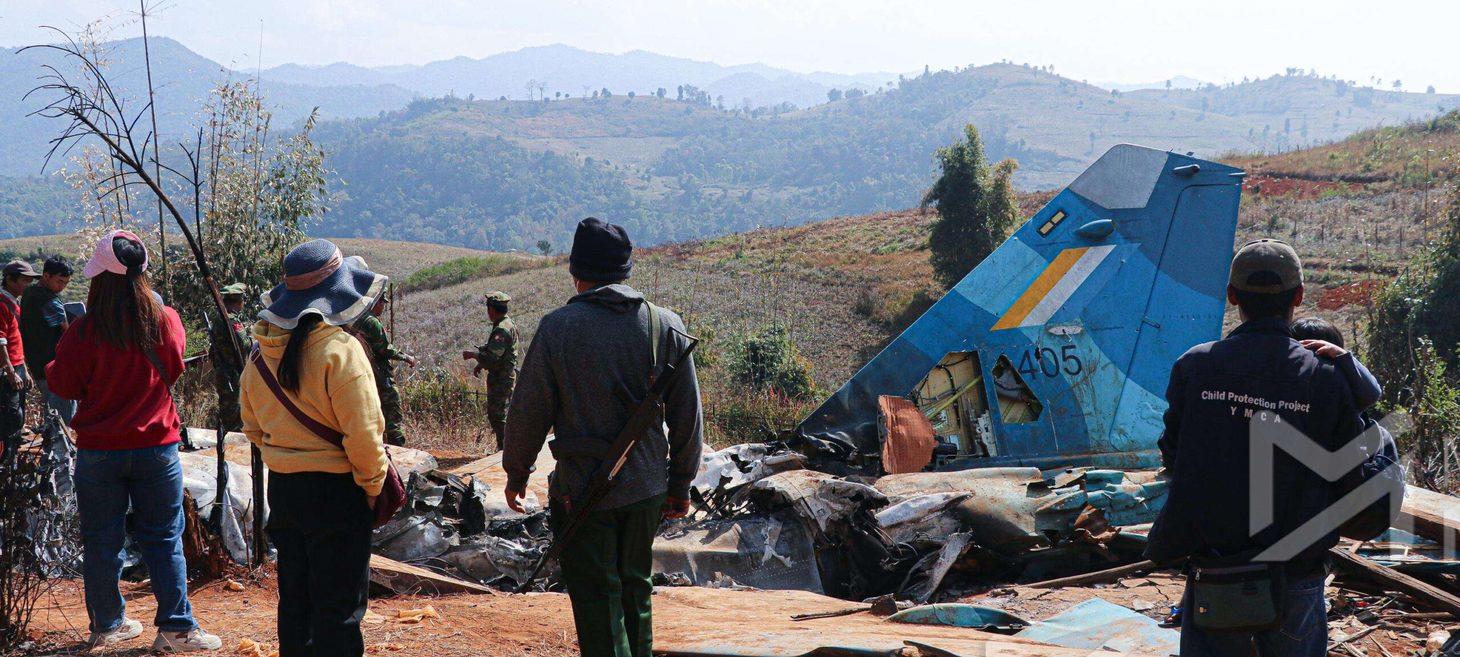
Junta helicopter makes emergency landing after being fired on in western Myanmar
A Myanmar military Mi-17 helicopter was forced to make an emergency landing in Magway Region after being fired upon while departing Ann Township in Rakhine State. The helicopter, one of two used to transport weapons and ammunition, was targeted amid ongoing clashes between the junta and the Arakan Army (AA), which is fighting for control of the junta’s Western Regional Military Command headquarters. The helicopter landed in a field near Kan Pauk village, requiring backhoes, bulldozers, and security vehicles to assist due to it being stuck in the mud. This incident highlights the intense conflict in the region as the AA continues its resistance against the military regime.
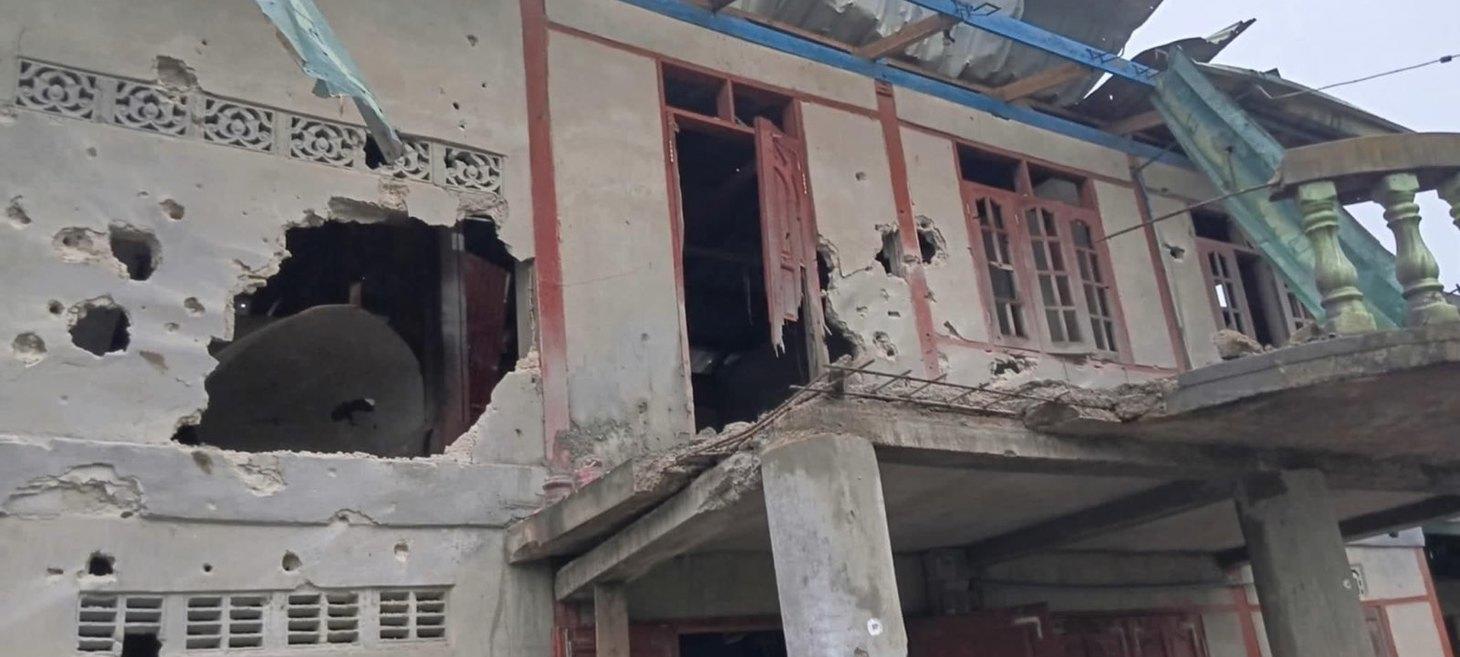
Myanmar regime’s air, artillery assaults kill at least six near Loikaw
In a recent assault near Loikaw, the Myanmar military regime's air and artillery attacks resulted in the deaths of at least six people, including a 10-year-old girl, according to the Karenni Human Rights Group (KHRG). The attacks, described as unprovoked by resistance sources, involved shelling in Loikaw Township that killed four individuals and airstrikes in neighboring Pekhon Township in southern Shan State that claimed two more lives. The shelling in Loikaw affected the villages of Noe Koe and Tha Yet Pin, with additional reports of at least six injuries in Noe Koe. The junta's forces are reportedly maintaining positions in Htay Ngha Hlar, a village on the outskirts of Loikaw, highlighting the ongoing conflict and its impact on civilian populations in the region.

Arakan Army captures two more bases in Ann, drawing nearer to Myanmar military’s regional headquarters
The Arakan Army (AA) has captured two more military bases in Ann Township, Rakhine State, bringing them closer to seizing the Myanmar military's Western Regional Military Command headquarters. The AA's recent victories include taking control of the Light Infantry Battalion 371 base and a weapons depot, intensifying the conflict in the region. Local sources report that some buildings at the command headquarters are on fire due to heavy artillery fire from the AA. The fighting, which resumed in late September after a pause, also involves ongoing clashes near the township's airfield. These developments highlight the AA's strategic advances and the Myanmar military's
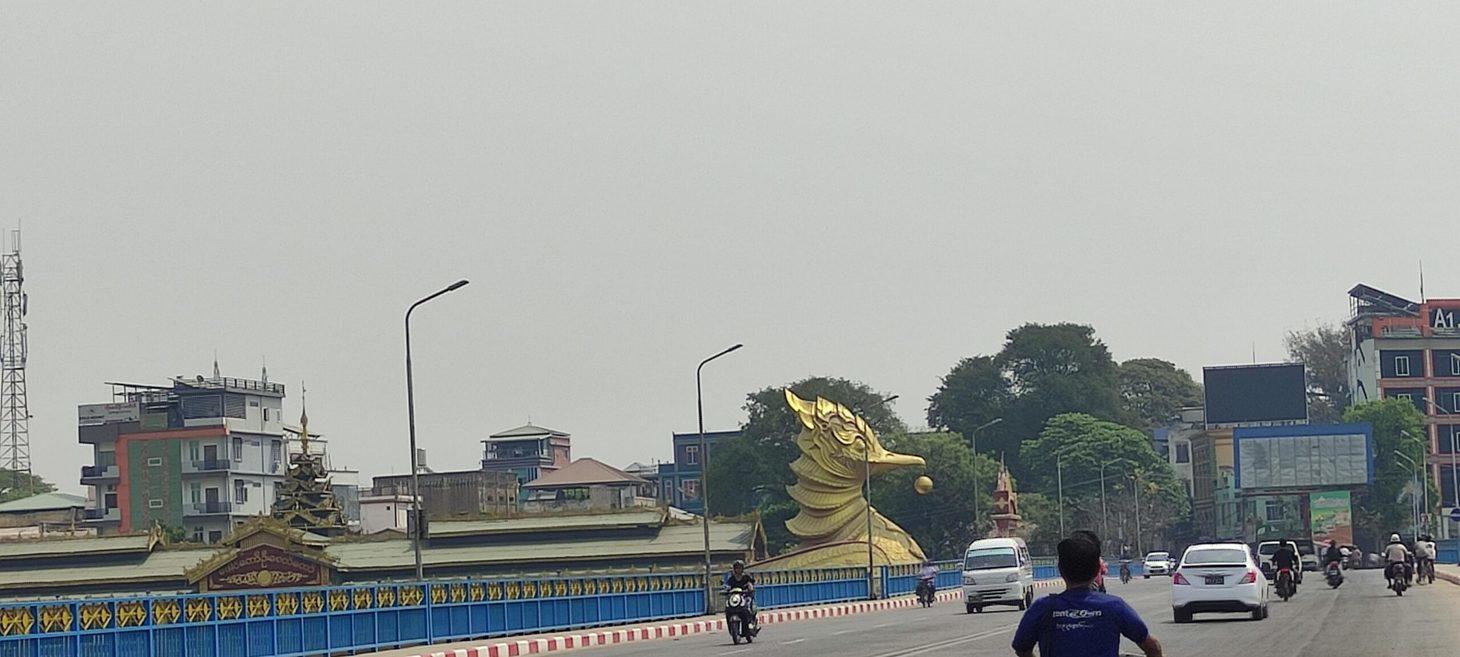
Unidentified attackers fire on Myanmar junta airbase in Meiktila Township
Unidentified attackers launched a pre-dawn assault on the Myanmar military's Shan Te airbase in Meiktila Township, Mandalay Region, using rockets and drones. Residents reported hearing around ten rocket explosions at the airbase, which is located near several military installations, including artillery bases and a munitions factory. Although no group has claimed responsibility, the use of 107mm rocket shells, favored by resistance groups, suggests their involvement. Following the attack, security was tightened in Meiktila, with increased vehicle checks and surveillance. Despite the attack, there were no reported casualties or damage to nearby villages, and the extent of the damage to the airbase remains unconfirmed.
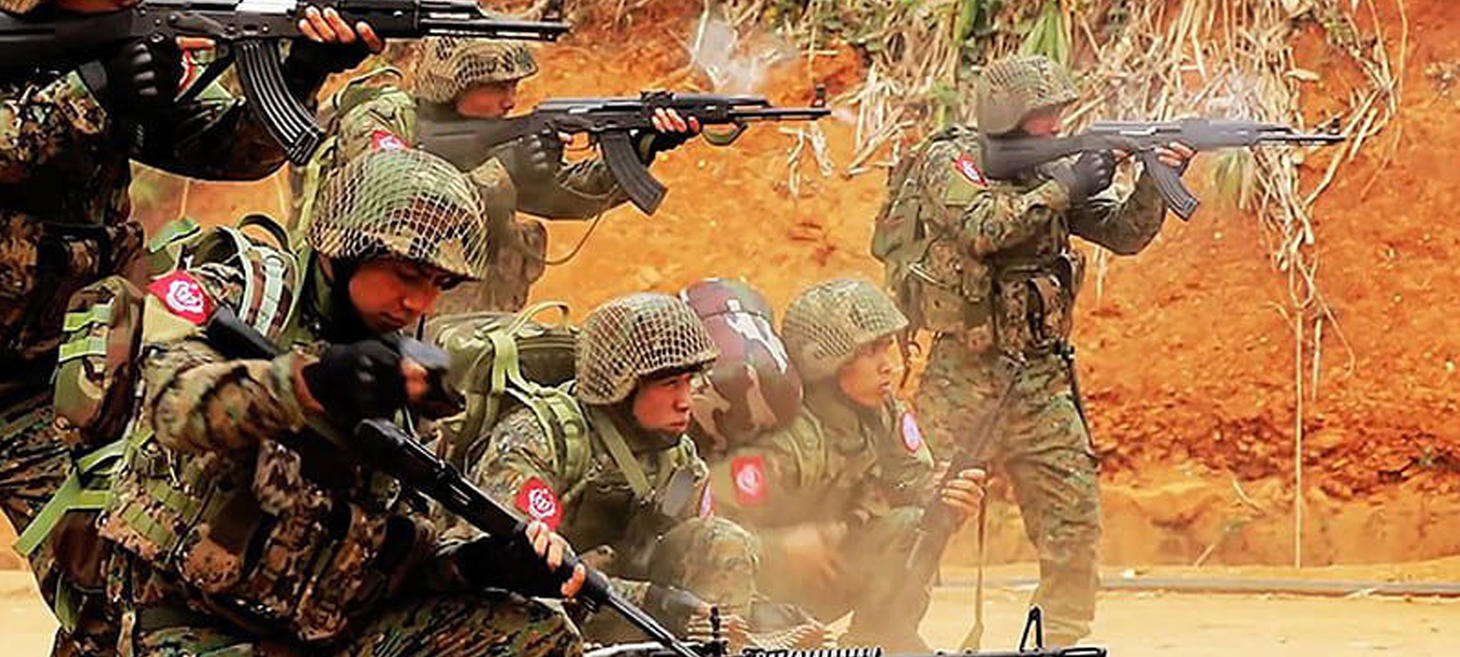
Arakan Army Targets Myanmar Junta’s Rakhine Power Hub
The Arakan Army (AA) has intensified its operations against Myanmar's junta by targeting a key power hub in Rakhine State, reflecting its strategic focus on expanding control and influence in the region. This escalation comes amid ongoing tensions and sporadic clashes between the AA and junta forces, despite a previously agreed truce aimed at addressing humanitarian needs. The AA's actions are part of a broader strategy to assert administrative control and challenge the junta's authority, leveraging its alliances with other ethnic armed groups. The situation remains volatile, with the potential for renewed conflict as the AA continues to resist the junta's attempts to reinforce its presence in Rakhine.
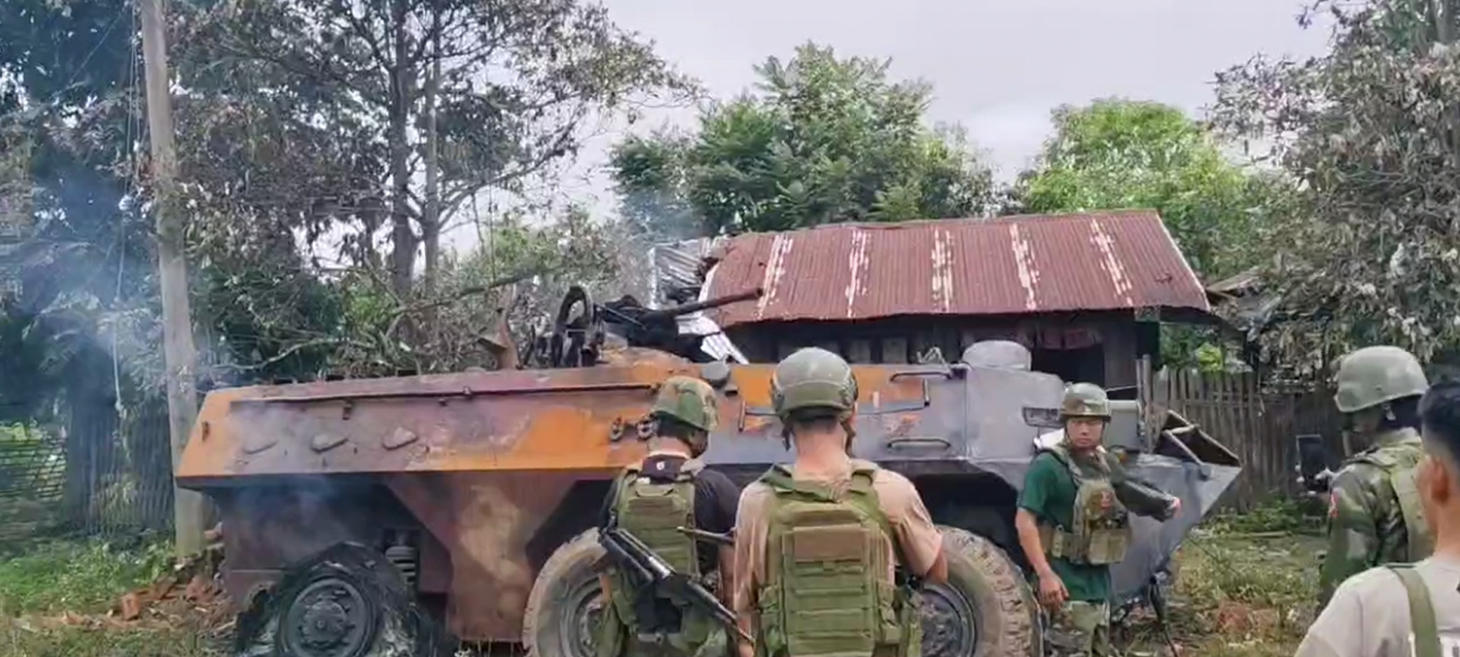
Myanmar Junta Launches Counterattack to Break KIA Stranglehold in Kachin
The Myanmar junta has initiated a counteroffensive to dismantle the Kachin Independence Army's (KIA) stronghold in Kachin State, aiming to regain control over strategic areas. This military action follows the KIA's successful operations that have disrupted the junta's supply lines and communication routes. The conflict has intensified, with the junta deploying airstrikes and ground troops to challenge the KIA's dominance. The ongoing clashes have exacerbated the humanitarian crisis in the region, displacing thousands of civilians and heightening tensions between the junta and ethnic armed groups. The situation remains critical as both sides continue to vie for territorial control.
Crime & Narcotics
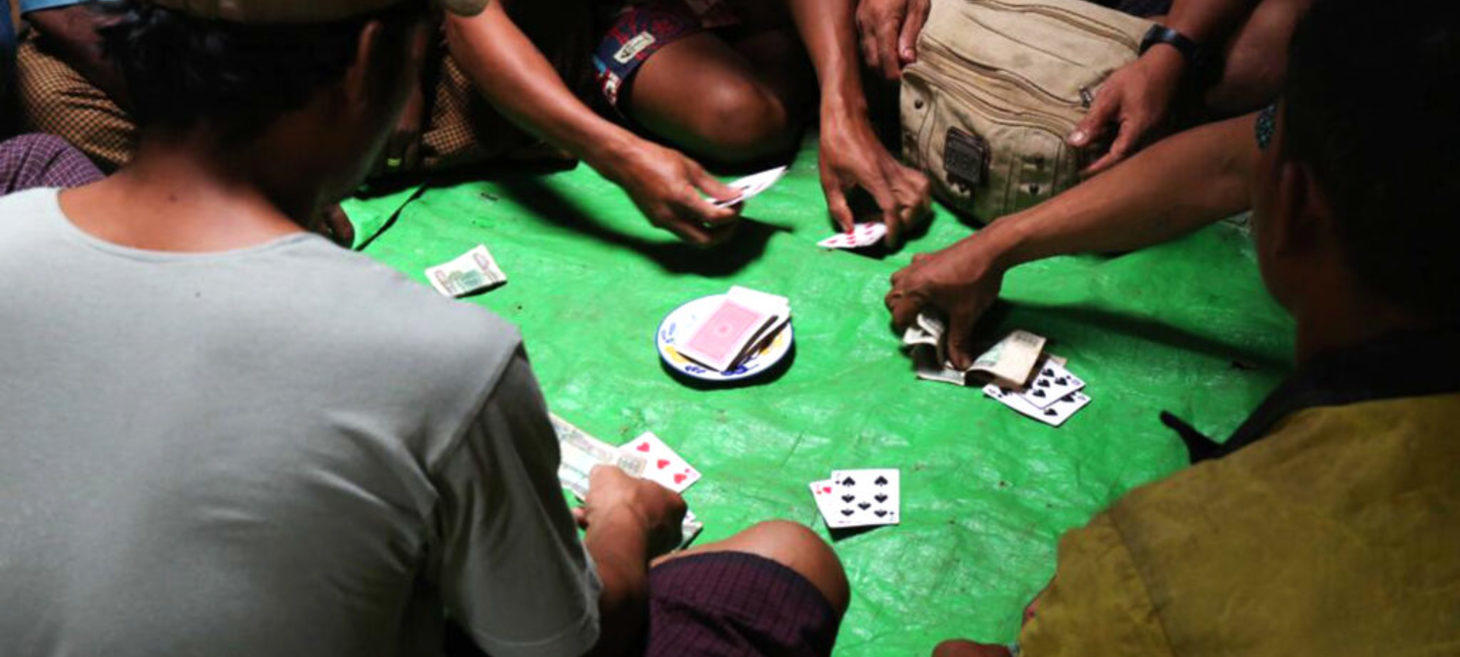
Dead man’s hand: Gambling takes over funerals
In Myanmar, a traditional practice of playing card games at funerals has evolved into extensive illegal gambling events orchestrated by gangsters. Originally, card games were a way for mourners to pass time, with small stakes and winnings often donated. However, this tradition has been corrupted into high-stakes gambling dens, particularly in poorer neighborhoods, exacerbated by the economic downturn and lawlessness following the 2021 military coup. Contractors organize these events, paying bribes to local administrators and police to avoid legal repercussions, and compete fiercely by offering substantial payments to bereaved families for hosting these gambling sessions. The practice has spread beyond impoverished areas to wealthier townships, with contractors profiting significantly despite the costs of bribes and competition.
Economy
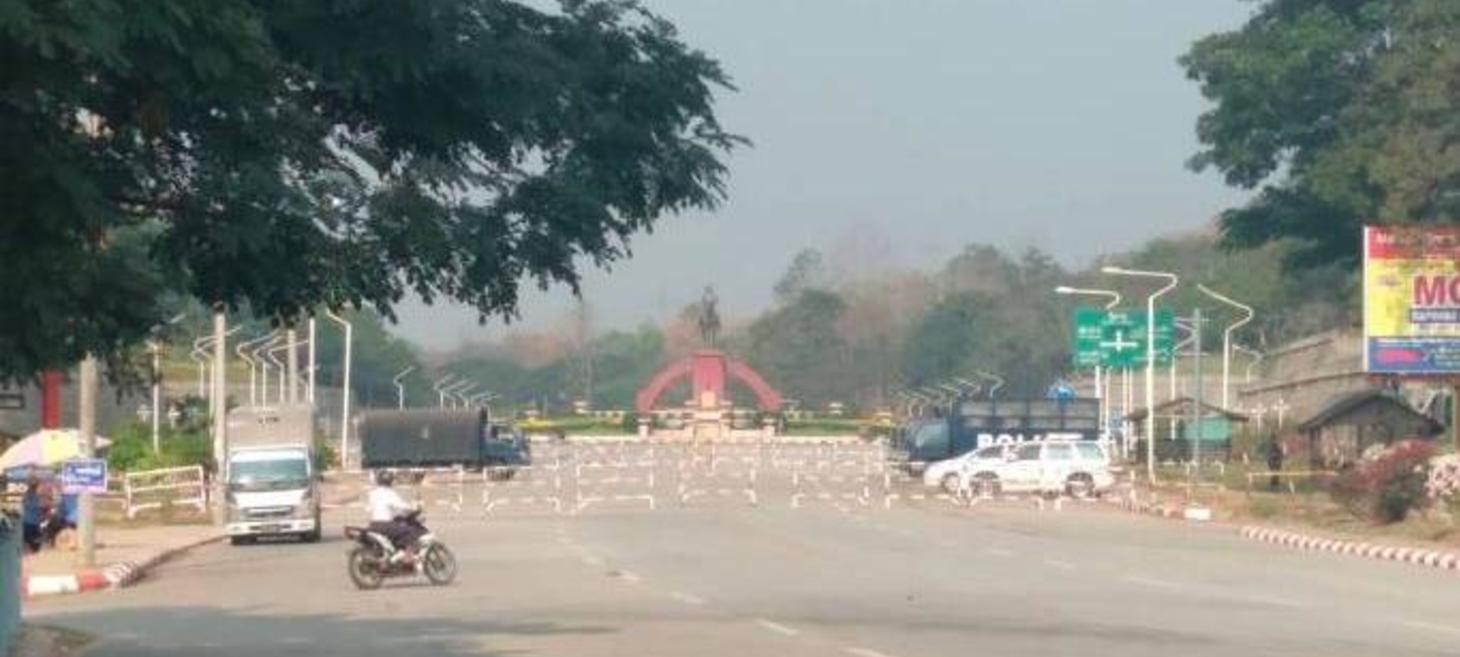
Myanmar moved up a level by the Financial Action Task Force
The Central Bank of Myanmar (CBM) announced that Myanmar's efforts in Anti-money Laundering and Combating the Financing of Terrorism (AML/CFT) have led to a change in its status by the Financial Action Task Force (FATF) and the Asia/Pacific Group on Money Laundering (APG). Despite some progress, Myanmar was moved to the FATF's list of High-Risk Jurisdictions Subject to a Call for Action due to insufficient progress on action items. The FATF urged enhanced due diligence measures while ensuring that humanitarian and legitimate financial activities are not disrupted. The CBM formed a task force to implement FATF recommendations and submit regular progress reports. Following a FATF plenary session, Myanmar was recognized for implementing six out of seven recommendations, achieving Enhanced Due Diligence status. However, being blacklisted alongside North Korea and Iran led to a significant withdrawal of foreign investors from Myanmar.
Ethnic Issues

EAOs’ Survival Needs Community Support
In October 2024, Chinese Special Envoy Deng Xijun met with Kachin Independence Army (KIA) leaders to end clashes with the New Democratic Army-Kachin (NDAK), but the KIA ignored China's requests and captured NDAK strongholds. Despite China's efforts, including seeking help from former KIA chairman General N’ Ban La, the KIA's actions suggest strong local support. China has pressured groups opposing Myanmar's military by closing border trade routes, causing a spike in goods prices. Concurrently, the Myanmar military, with China's backing, launched offensives against the Three Brotherhood Alliance (3BHA) to reclaim lost territories. The TNLA, part of 3BHA, continues to resist despite supply challenges due to China's trade restrictions. The Arakan Army remains less affected by Chinese pressure due to its strategic location and control over areas with significant Chinese projects. The Myanmar military has regained some control in northern Shan State, highlighting the complex dynamics between ethnic armed groups, the military, and China's influence.
Foreign Affairs
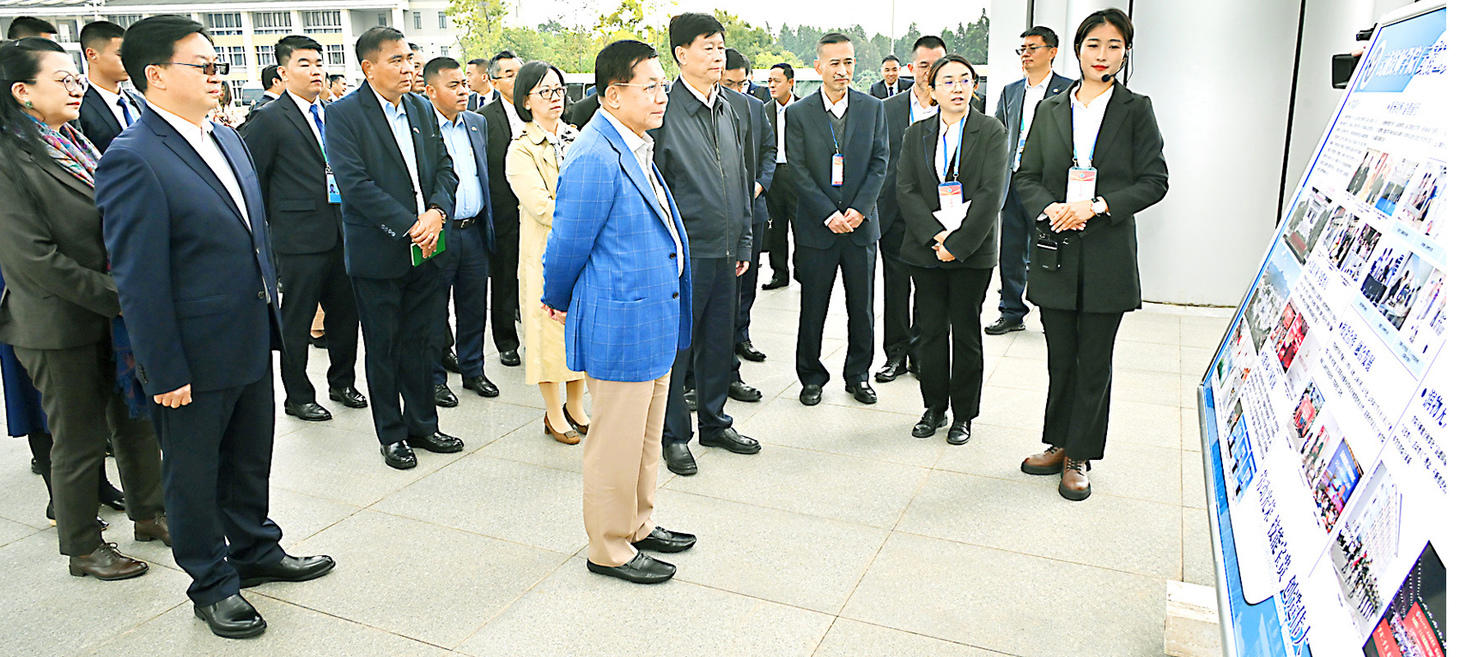
China Unwise to Pressure Groups Opposed to Myanmar Junta, Says NUG
The National Unity Government (NUG) of Myanmar has criticized China's approach of pressuring groups opposed to the Myanmar military junta, arguing that such actions are unwise and counterproductive. The NUG, which represents the democratic resistance against the junta, believes that China's pressure could exacerbate the conflict and undermine efforts to restore democracy in Myanmar. The NUG emphasizes the importance of international support for democratic forces and warns that siding with the junta could damage China's regional reputation and influence.

Trump and galvanizing the Burma Act
A Donald Trump presidency could significantly alter U.S. policy towards Myanmar, with expectations of a more transactional and less interventionist approach, focusing on strategic interests over multilateral initiatives and human rights concerns. Republican control of both the Executive Branch and Congress might expedite the implementation of the Burma Act, which aims to support resistance groups in Myanmar with non-lethal assistance. However, Trump's "America First" doctrine may lead to reduced emphasis on sanctions and humanitarian aid, potentially prioritizing direct negotiations with Myanmar's junta. This shift could impact U.S. leadership in supporting Myanmar's pro-democracy movements and addressing the humanitarian crisis, while also affecting geopolitical dynamics in the region, particularly concerning China's influence.
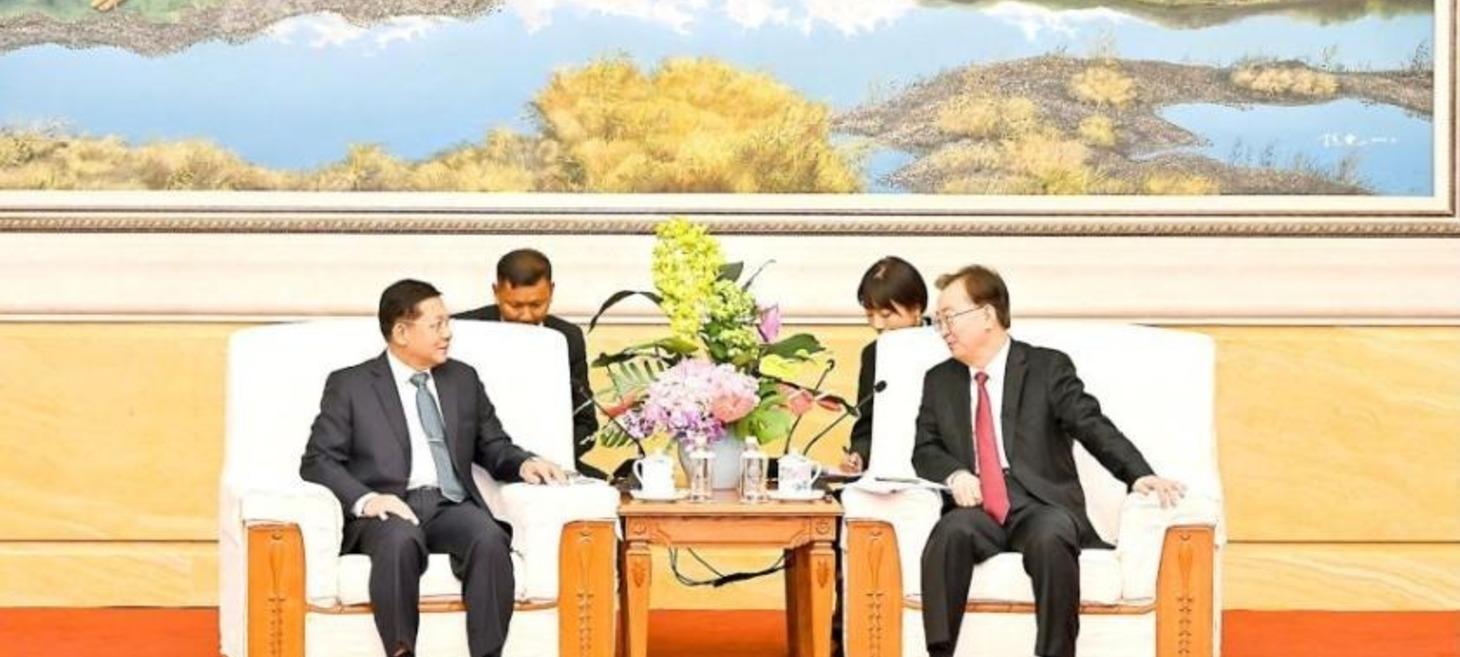
Junta Leader to Chinese: EAOs Threat to Border Stability
Myanmar junta leader Min Aung Hlaing has expressed concerns over ethnic armed organizations (EAOs) near the Myanmar-China border, labeling them as threats to regional stability. During a meeting with Chinese businessmen in Kunming, he accused these groups of rejecting peace talks and exploiting the situation to create misunderstandings about Myanmar in China. He also highlighted issues of illegal border trade, which he claims harm both countries and threaten stability. Since July 2024, China has closed or restricted several border crossings with Myanmar, impacting trade. The closures followed the capture of key trading posts by the Three Brotherhood Alliance and the Kachin Independence Army's control of strategic towns, leading to further border shutdowns by China. Additionally, China has banned exports of essential goods to Myanmar through certain border towns controlled by ethnic armies.
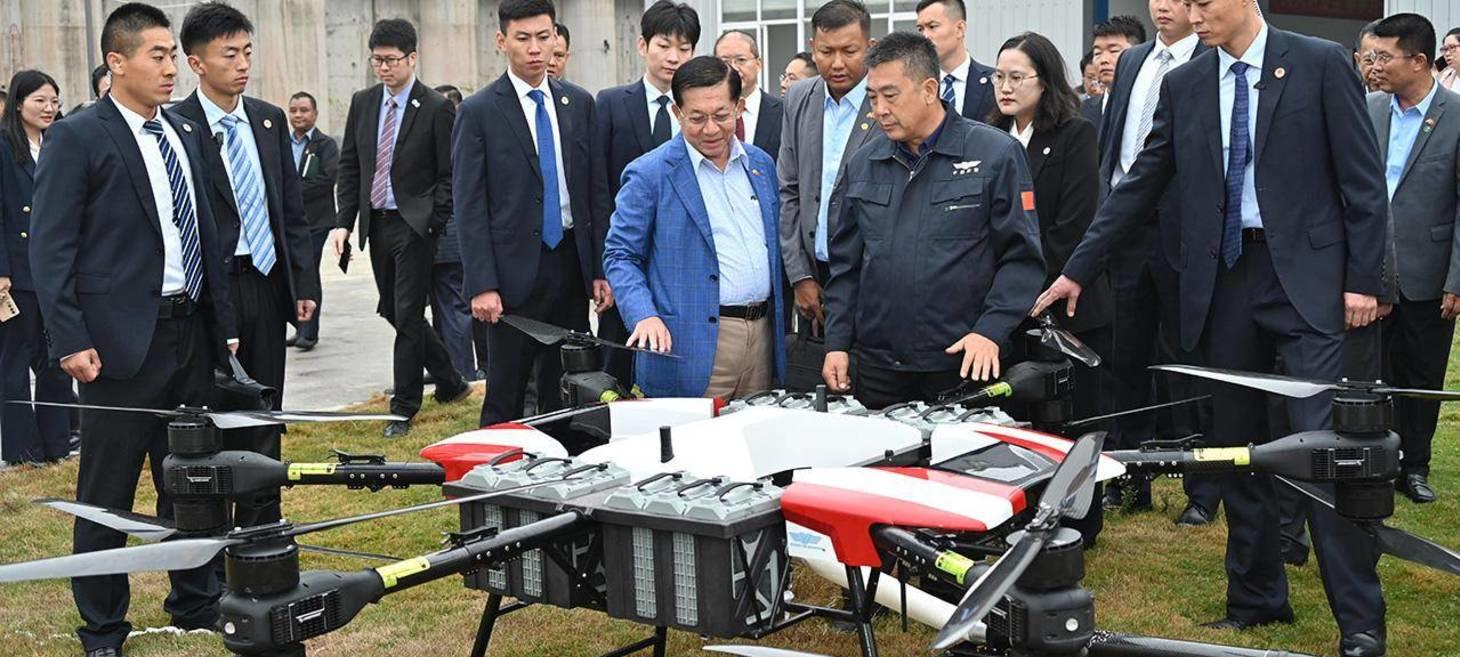
THE PLOT THICKENS: Junta’s chief visit China as anti-junta forces ponder on their next move
General Min Aung Hlaing, head of Myanmar's military junta, returned from summits in China with renewed confidence and Chinese backing, following meetings with Chinese officials and investors. During his visit, he portrayed anti-junta forces negatively and secured China's endorsement of his regime, including control over border gates and support for Myanmar's elections. Despite this, the National Unity Government (NUG) criticized China's stance, warning it could strain relations and fuel anti-China sentiment. Meanwhile, military conflicts in Myanmar continue, with resistance forces making significant territorial gains against the junta, highlighting the ongoing instability and the complex dynamics of international involvement in Myanmar's internal affairs.
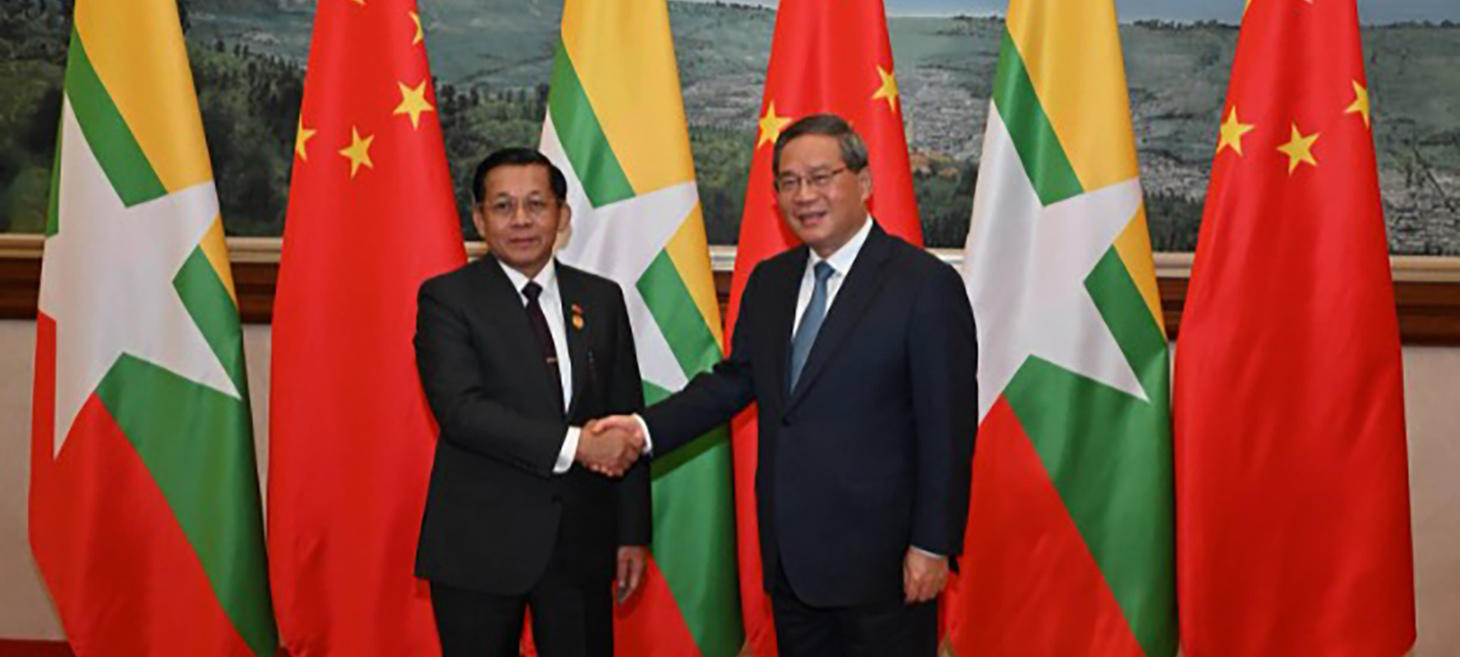
Myanmar Junta Seals Bloody Pact With China in Kunming
Myanmar's military junta has strengthened its ties with China by signing a security agreement during a meeting in Kunming, China. This pact, signed by Myanmar's Minister of Home Affairs Lieutenant General Yar Pyae and China's Minister of Public Security Wang Xiaohong, focuses on enhancing cooperation in law enforcement, counter-terrorism, and border security. The agreement is seen as a move by the junta to secure China's support amid international isolation and internal conflict. It underscores China's strategic interest in maintaining stability along its border with Myanmar and ensuring the security of its investments in the region. This development highlights the junta's reliance on China as a key ally, despite ongoing human rights abuses and military offensives within Myanmar.
Humanitarian

2 million at risk of starvation in Myanmar state amid ‘total economic collapse’
A UN report warns that two million people in Myanmar's Rakhine State face starvation due to a "total economic collapse" caused by ongoing conflict and military-imposed trade blockades. The situation has led to severe food shortages, hyperinflation, and a drastic drop in rice production, with many resorting to eating rice bran. The UNDP accuses the military of "collective punishment" on civilians, while aid access is severely restricted. The crisis has halted essential services and driven up food prices ten-fold. The UNDP calls for lifting restrictions to allow aid and goods flow, emphasizing the need for a political resolution involving regional and international cooperation. The plight of the Rohingya is particularly dire, with many risking dangerous journeys to escape.
Politics
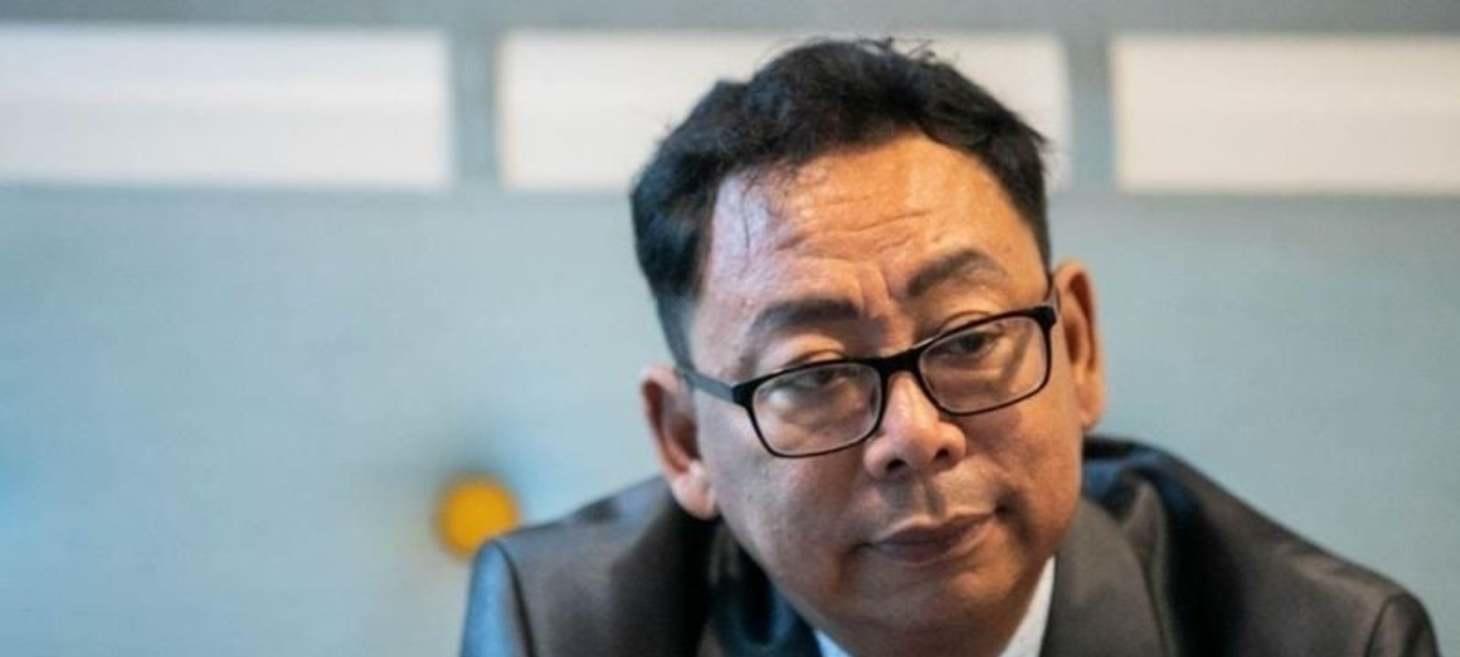
NUG minister states negotiations possible if military officials willing to accept political objectives for power transition
U Tin Tun Naing, Union Minister of Planning, Finance, and Investment for Myanmar's National Unity Government (NUG), announced that the NUG is open to negotiations with military officials who accept its six political objectives, which include eliminating military influence from politics and establishing transitional justice. This announcement was made during a press conference with allied ethnic revolutionary groups, emphasizing the need for dialogue with military officials for a peaceful power transition post-junta. The NUG's objectives were condensed into three main goals: ending the military coup, abolishing the 2008 Constitution, and ensuring justice for conflict victims. While the NUG is willing to negotiate with military officials who align with these goals, it excludes those responsible for grave injustices. Meanwhile, coup leader Min Aung Hlaing has called for dialogue based on the National Ceasefire Agreement, highlighting ongoing political tensions and the complex path toward resolving Myanmar's crisis.
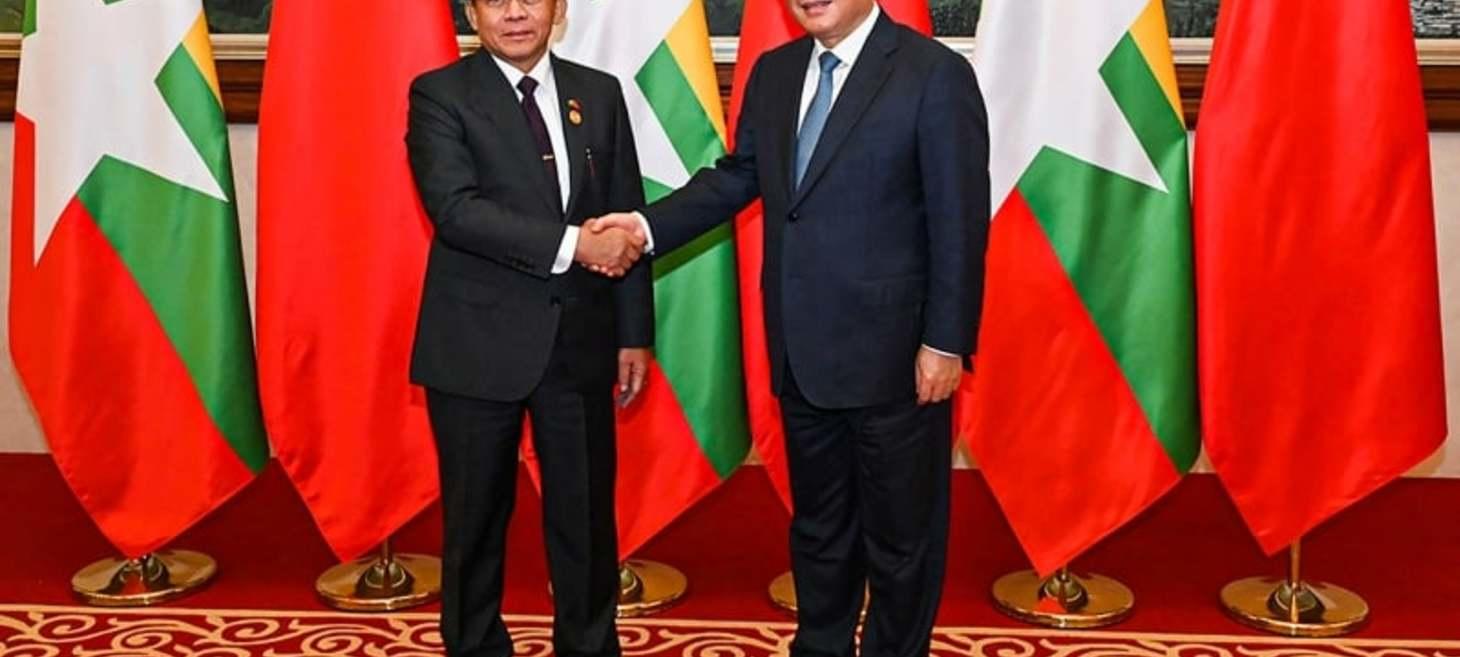
Myanmar junta chief signals openness to peace talks with the Three Brotherhood Alliance during meeting with Chinese premier
Myanmar's junta leader, Senior General Min Aung Hlaing, expressed a willingness to engage in peace talks with the Three Brotherhood Alliance, comprising the Arakan Army, Myanmar National Democratic Alliance Army, and Ta’ang National Liberation Army, during a meeting with Chinese Premier Li Qiang in Kunming. However, he stipulated that talks would only proceed if the alliance demonstrated a genuine commitment to peace, though he did not specify the required actions. The meeting also highlighted the importance of safeguarding Chinese investments and infrastructure in Myanmar, with plans to begin construction on the Muse-Mandalay-Kyaukphyu railway. Premier Li Qiang affirmed China's support for the junta's Five-Point Road Map and military-led elections, emphasizing stability in northern Myanmar and cooperation on border management. Meanwhile, the junta, facing territorial losses, has labeled the alliance as terrorist groups and continues military operations against them.
Telecommunications

Myanmar military tightens grip on internet with VPN crackdown
The Myanmar military has intensified its control over internet access by cracking down on virtual private networks (VPNs), significantly reducing social media usage and creating challenges for businesses in the country. This move has dramatically dropped Facebook usage, from 84% in January to just 10% in September. The crackdown on VPNs, which help users bypass censorship and surveillance, has been linked to support from Chinese companies for the military's surveillance efforts. This development further complicates the situation in Myanmar, where the military government is already facing internal conflict and international scrutiny.